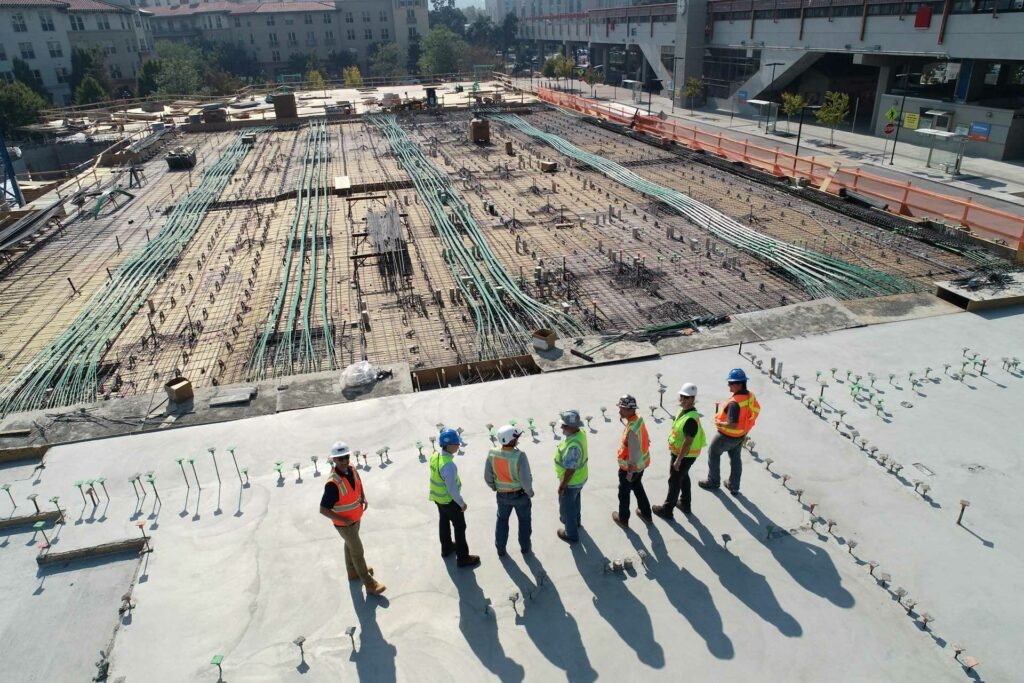
Every industry, or even every business, should strive to be more productive. In offices around the world, that mostly takes the form of using new digital software to streamline administrative tasks, AI, cloud storage, etc. But what does a more hands-on industry like construction look like when trying to up productivity? We explore here.
Optimize equipment and tools
Select the right equipment for the job and keep tools in good working order to prevent breakdowns and delays. Create maintenance schedules to keep every tool at its best so nothing breaks down in the middle of a project. And there are other ways you can streamline the construction process, like outsourcing. For example, you can use precast retaining walls to save time and labour.
Prioritize safety and wellbeing
You can only go as fast as your staff can work, therefore safety must be a priority not just because you care for your team members. Reduce fatigue and injuries through proper protective gear, workplace sanitation, and policies that promote healthy work-life balance for crews. Should something go wrong you’re going to feel that deadline creeping nearer.
Streamline communication
Communication is important in any team, but in construction especially you can keep everyone on track if they don’t have to keep asking questions or checking in. Have regularly scheduled meetings outlined for these discussions. Make sure you have clear protocols for change orders, and use technology like project management software to keep everyone on the same page.
Planning and organisation
These meetings will help you out with planning and organization. Invest time in detailed project plans, task scheduling, procurement logs, and site layouts to minimize wasted effort and backtracking. If something needs adapting, learn to think on your feet but time is saved when you know what you’re doing from the start.
Promote training and collaboration
People who work together will work faster if they are happily collaborating. Dissatisfied team members are naturally going to work slower and communication breaking down will cause work to stall. Train workers on the latest techniques and encourage idea-sharing and group problem-solving. Teams learn together, so get everyone together perhaps once a quarter to go over finer details of the project you’re working on.
Additionally, it’s important to keep your team motivated, which training will do. You might also want to reward and recognize top performers. Use incentives, and bonuses, and highlight teams who come up with smarter solutions to motivate all workers. This will not only reward good work but prompt others to do better work or work faster.
Remember to set clear goals for your team to drive towards. Establish project milestones and productivity metrics to track progress and quickly address any roadblocks that arise.
Leverage technology and innovations
Keeping up to date with technological innovations is a given for any industry. Use apps, drones, VR, modular construction, and automation to boost productivity through better data and efficiency gains. Drones will make a good means of transporting materials around the site.
For example, virtual reality is very helpful in training nowadays. Project managers can enjoy using it for design visualisation, showing a 3D rendering that users can walk through to fully give the idea of the project. When it comes to your construction team, VR simulations have been used to help identify hazards and plan safer operations like crane lifts or demolition sequences.
